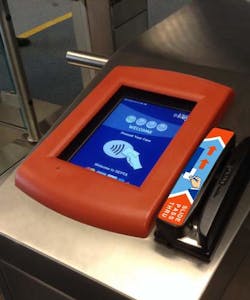SEPTA Key Tap-to-Exit Program to expand to all center city regional rail stations
The Southeastern Pennsylvania Transportation Authority (SEPTA) has expanded its tap-to-exit program to the three remaining Center City Regional Rail stations.
The tap to exit began at Penn Medicine Station on Feb. 19. Temple University Station will follow on Feb. 26, with 30th Street Station scheduled for March 4.
When tap to exit begins at these stations, customers with Key Cards, senior citizen passes and magnetic stripe passes can tap or swipe to exit at designated turnstiles. Customers who use paper tickets or cash can continue to use turnstiles that are not designated for tap to exit.
Similar to the rollouts at Jefferson and Suburban stations, the program will start with a small number of turnstiles designated for tap to exit at each station and will grow as customers become accustomed to using them. There will be signage directing customers to the tap-to-exit turnstiles, and SEPTA Key Ambassadors will be on-hand to assist customers and answer questions. While customers will not be required to use tap to exit during this phase of the program, SEPTA is encouraging riders to try this option so they can get familiar with the system as the Key implementation moves forward.
When the Key is fully implemented on regional rail, tapping in and out will be required at the gated Center City stations. It will also be important for customers to tap in and out at their home stations to open and close their trips. This ensures they are paying the correct fare, consistent with the TrailPass they have purchased, and eventually, for single-ride fares paid for with their Travel Wallet.
The tap-to-exit rollout is designed to help customers prepare for the full implementation of the SEPTA Key on Regional Rail, including the introduction of Travel Wallet this spring. More details about Travel Wallet for Regional Rail will be announced in the near future.
